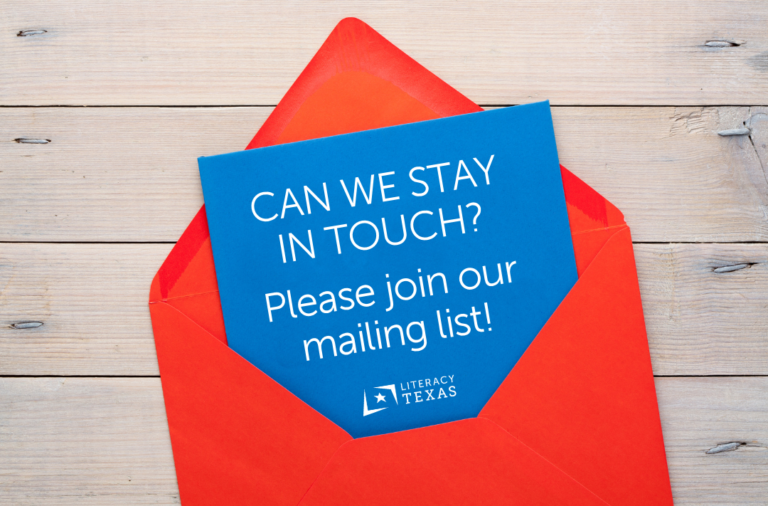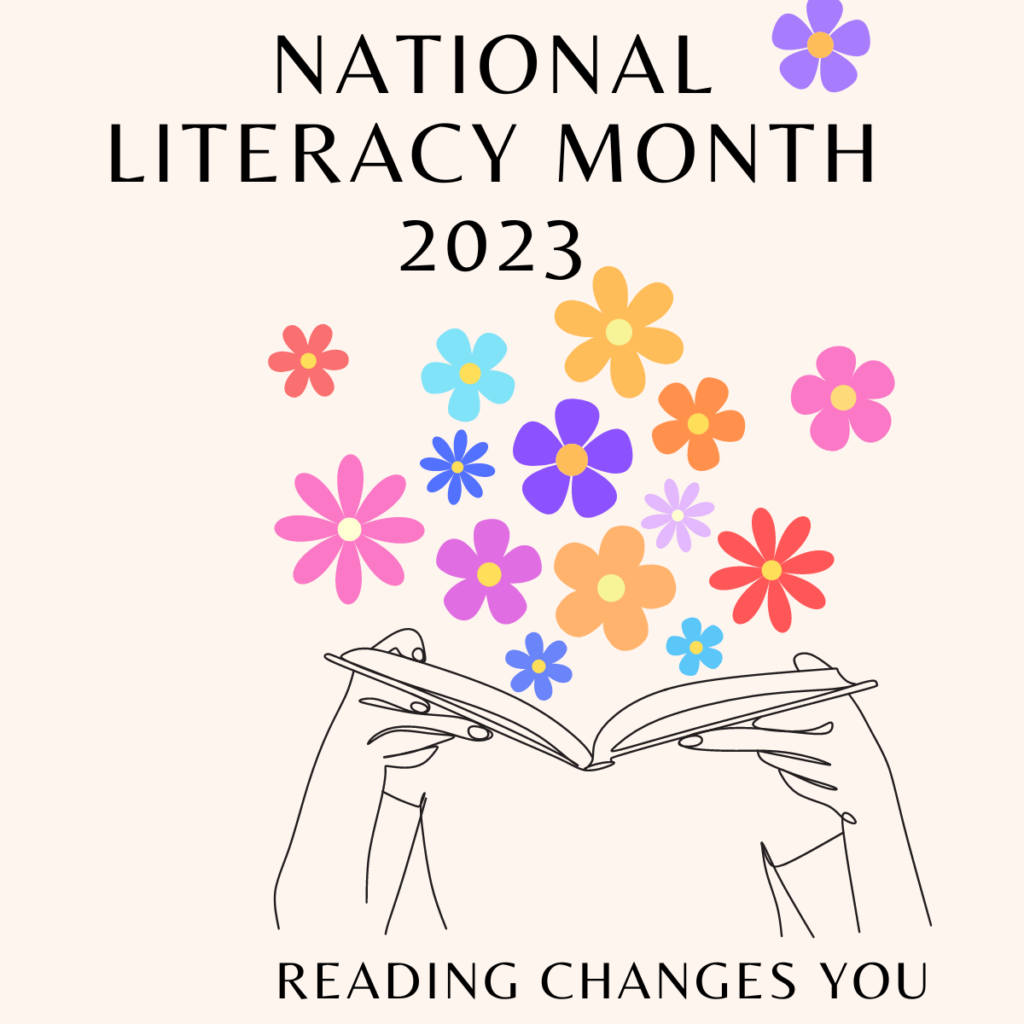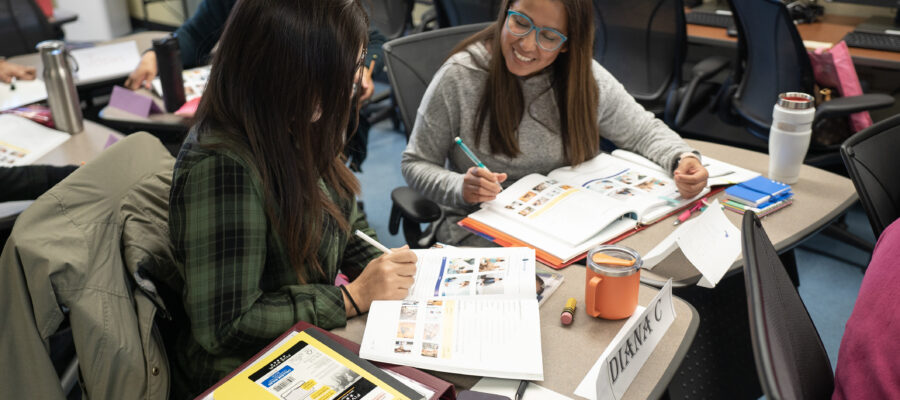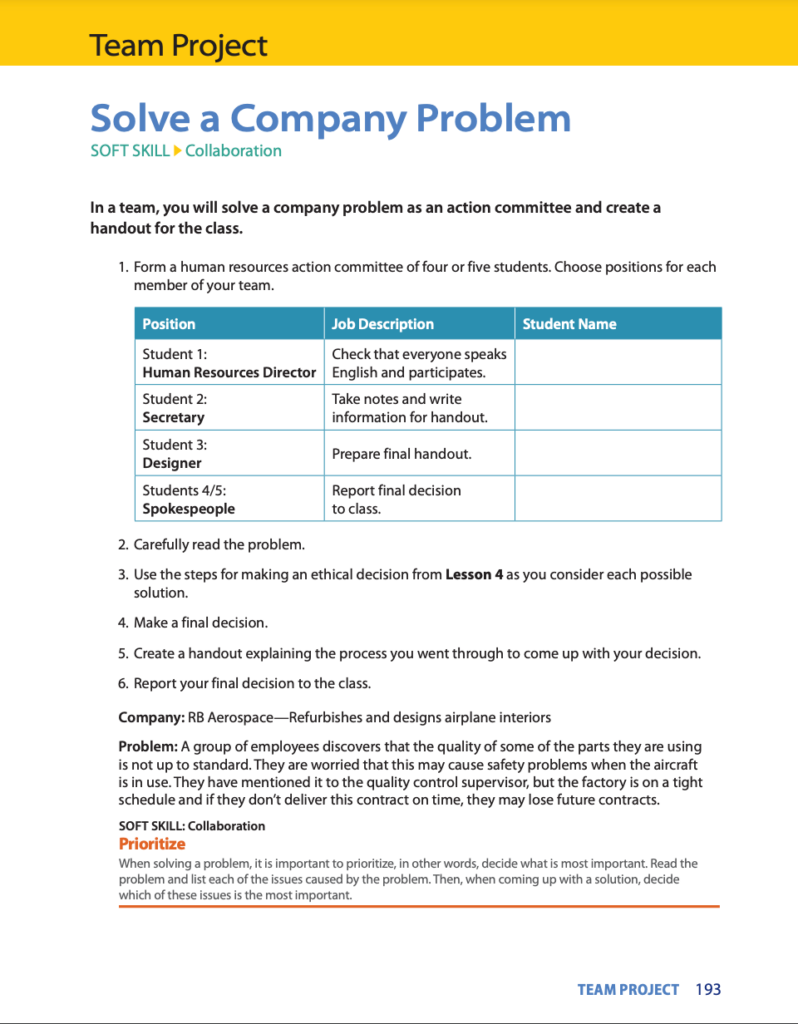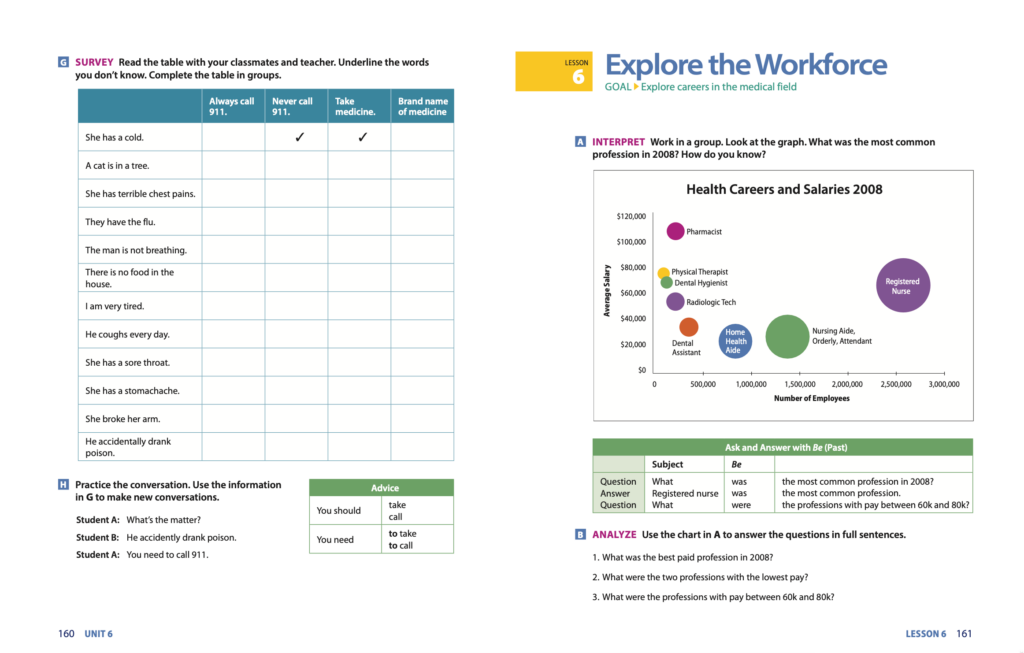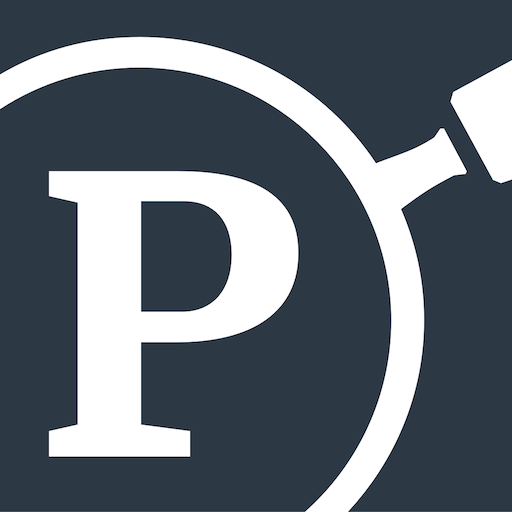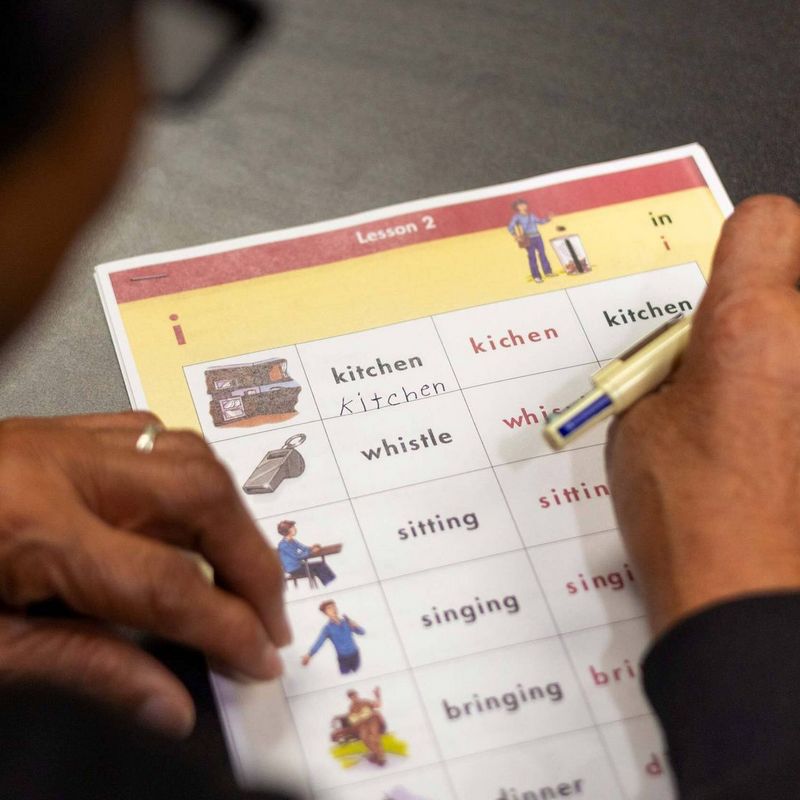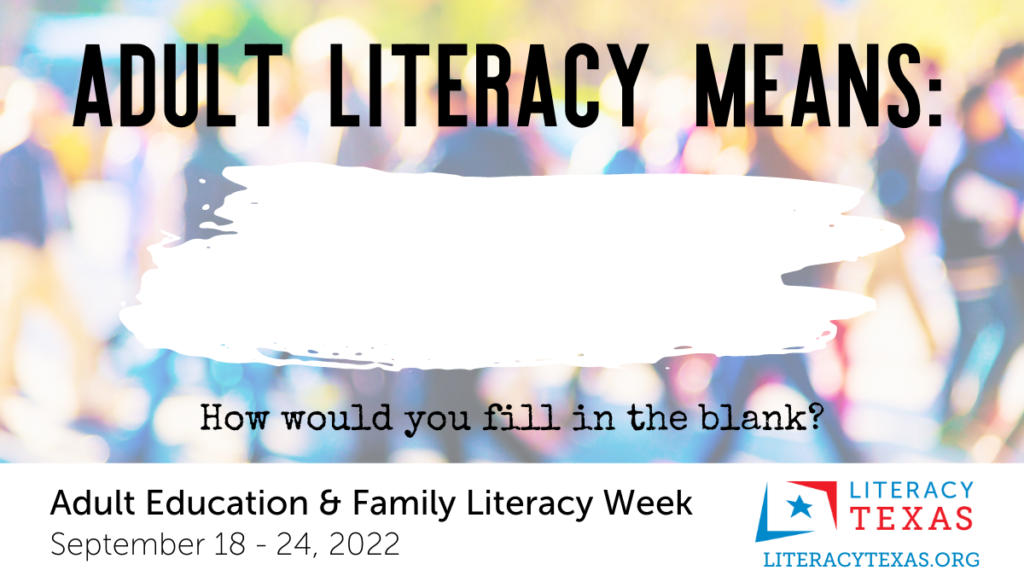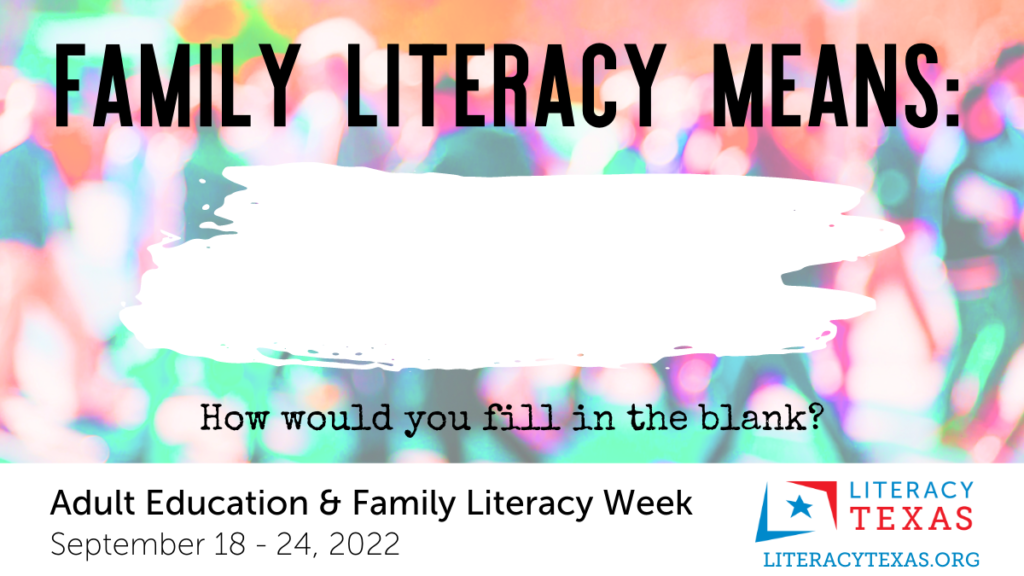
Author: Dr. Jenny McCormack Walker, Literacy Texas Executive Director
Life was pretty lonely for me in 2022 while I was finishing my doctorate and preparing for the final defense of my dissertation. Everyone else in my friend group is cool and fun, so while they watched football and drank beer at the local pizza parlor, I was in the corner booth trying to connect the dots between Paulo Freire and functional literacy.
As I was adding chapters to my paper, I was walking through a very sad chapter in my social life. That was until I made a new friend who matched my extreme level of nerdiness – the librarian.
As I followed one of the thousands of rabbit holes I went down into the abyss of adult literacy research, I stumbled upon a random Powerpoint Presentation that mentioned a statistic I thought seemed interesting and relevant to my study.

Since this presentation didn’t include references, I knew it would be a long shot to track down the original source of information. I wrote to the presenter, whose email address was listed on the presentation, but received no response. I spent days scouring databases and search engines trying to find the source. When I had exhausted all of the options I could think of on my own, I knew it was time to call in a professional.
I emailed the general library help desk and explained my predicament. Within the hour, I received an email from Emma, a young, newly hired librarian who was eager to help me search. She wanted to learn more about my project and this specific statistic so that she could help me best. We chatted on the phone for about 30 minutes, and then she went to work.
The next morning, I opened my email to 20 new messages. Emma not only was able to track down a valid resource for the statistic I needed, but she had also made contact with the university professor across the country whose graduate student had created that Powerpoint.
Through their exchange, Emma learned that the professor had lost touch with the student but that she had conducted research similar to mine. Emma took it upon herself to make a virtual introduction, and the professor ended up becoming a valuable mentor for me. Emma also found at least 10 other resources that I had never seen that supported my study. She had gone above and beyond, and I felt as though I had hit the research jackpot with Emma.
Over the course of the next year, Emma didn’t mind listening to me geek out over obscure infographics I found, and she cared about the success of my study almost as much as I did. She checked in on me, and she always gave me the best advice for Boolean searches and choosing databases. We never had pizza or beer together, but she certainly became a trusted friend. I felt so fortunate that she answered my email that day.
Looking back, I realize that when I reached out to the library for help, my problem really was not a research issue as much as it was a disconnect in information literacy. I knew there was information I needed to access, but I was at a loss on exactly how and where to find that information.
This is a challenge for many adult learners. They may not be writing academic dissertations, but they often need help simply knowing how and where to find important information. When this situation arises, I hope they find someone like Emma who can help them get connected and care about their success enough to support them like a friend.
Our theme throughout February is Literacy at the Library, and we’re focusing on related topics throughout the month. Plan to join us at our next Best of Texas online session, focused on library literacy programs, on February 27.
Amazing things are happening in Texas!
“Best of Texas” brings local experts together to share their wisdom and experience.



